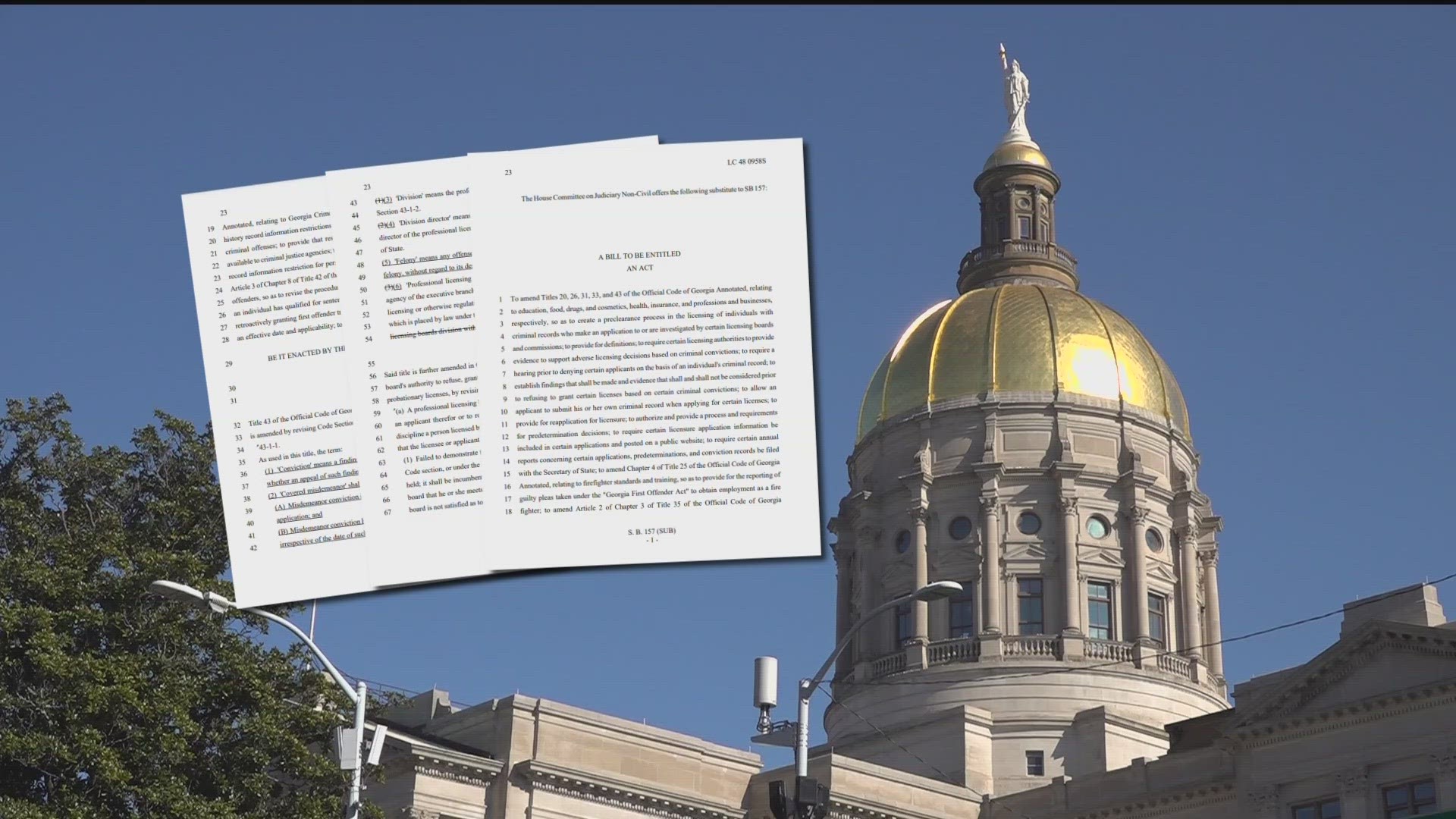ATLANTA — One in six jobs in Georgia requires an occupational license according to the Georgia Justice Project. Under the current state law, workers with any kind of arrest or conviction can face losing their license or being denied a career altogether. However, a group of businesses, non-profits, and legislative leaders are working to change that with SB 157.
Authored by Sen. Brian Strickland and supported by the Georgia Chamber of Commerce, the Metro Atlanta Chamber of Commerce, Georgia Justice Project (GJP), and Lieutenant Governor Burt Jones, SB 157 would ensure qualified Georgians are not marginalized due to old, irrelevant records of arrest or conviction.
4.5 million people have a Georgia criminal record, according to GJP, which is why GJP Policy Director Wade Askew says this bill is so critical.
“What this bill would do would make sure that boards and agencies are just focusing on offenses that are recent, relevant, or serious," added Askew.
Chris Clark, President and CEO of the Georgia Chamber of Commerce, sees how occupational licensing reform can help bridge some of Georgia’s workforce gaps.
“The War for Talent is the top priority for our members, and GJP’s work on second chance hiring and occupational licensing reform is a crucial piece of the puzzle to solving our short and long-term workforce needs,” she said.
Katie Kirkpatrick, President and CEO of the Metro Atlanta Chamber, added, “With 1 in 4 high-demand jobs in Georgia requiring an occupational license, transparency and fairness in the occupational licensing process are critical to ensuring the robust talent pipeline our state needs to keep thriving. The Metro Atlanta Chamber supports efforts to expand our state’s talent pool by streamlining and clarifying occupational licensure criteria. Such efforts are a continuation of our organization’s longstanding commitment to advancing second chances legislation to help remove barriers to quality employment and housing for Georgians.”
SB 157 is modeled after best practices already adopted in other states, including South Carolina, North Carolina, and Florida. It has been recommended for passage by the 2023 Senate Occupational Licensing Study Committee. It is also a prominent part of Lt. Governor Jones’ Red Tape Rollback initiative.

